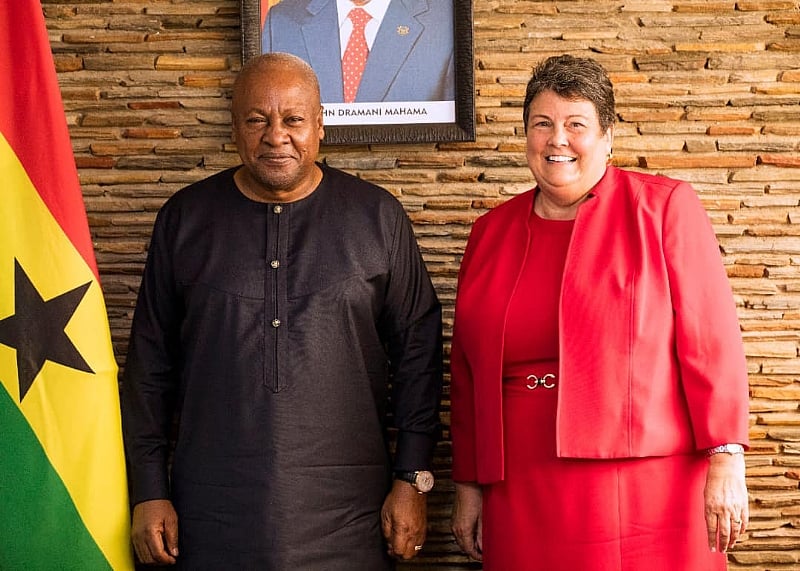The recent imposition of a 10% tariff on certain Ghanaian exports by the United States has sparked concerns and necessitated clarification from both sides. U.S. Ambassador to Ghana, Virginia Palmer, emphasized that the tariff is not a targeted measure against Ghana, but rather a component of a broader U.S. strategy to address global trade imbalances. This strategy, enacted under the International Emergency Economic Powers Act (IEEPA) of 1977, allows the U.S. executive branch to respond to perceived threats to the nation’s economic and foreign policy interests. Ambassador Palmer’s clarification came during a diplomatic meeting with Ghana’s Minister for Foreign Affairs, Samuel Okudzeto Ablakwa, and other officials, underscoring the importance of open communication and collaboration in navigating this complex issue. The meeting aimed to address Ghana’s concerns and explore avenues for mitigating the tariff’s potential negative impact.
The U.S. government’s justification for the tariffs rests on the need to rebalance global trade relationships. The tariffs, which took effect on April 5, 2025, are not specifically targeted at Ghana but apply to various countries. The Ambassador stressed that key Ghanaian exports, including oil, gas, and energy-related products, are exempt from these tariffs. Furthermore, goods exported under the African Growth and Opportunity Act (AGOA), a preferential trade program providing duty-free access to the U.S. market for eligible African countries, remain unaffected. This clarification seeks to alleviate concerns about the potential disruption of established trade flows under AGOA, a vital program for Ghana’s export economy.
The diplomatic dialogue between the two countries also focused on the potential for further exemptions for strategic sectors crucial to Ghana’s economy, notably cocoa and garments. These sectors represent significant sources of export revenue and employment for Ghana, and their inclusion under the tariff regime could have substantial negative consequences. Recognizing the potential for job losses and reduced trade volumes, both nations agreed to work together to minimize the tariffs’ ripple effects. This collaborative approach signals a commitment to maintaining a strong bilateral trade relationship despite the emerging challenges.
The meeting between U.S. and Ghanaian officials signifies a shared understanding of the need to address the economic implications of the tariffs. Ghana’s Ministries of Foreign Affairs and Trade, Agribusiness and Industry pledged to maintain ongoing diplomatic engagement with their U.S. counterparts. This sustained engagement is vital for advocating for Ghana’s interests, exploring mitigation strategies, and ensuring that the broader U.S. trade strategy does not disproportionately harm Ghana’s economy. The commitment to continuous dialogue underscores the value both countries place on their bilateral relationship.
While the tariff implementation presents a challenge, it also provides an opportunity to strengthen the U.S.-Ghana economic partnership. By engaging in open discussions and exploring mutually beneficial solutions, both nations can navigate this complex issue and ensure a stable and prosperous trade relationship. The willingness of both sides to collaborate and address concerns constructively demonstrates the strength and resilience of their bilateral ties. This cooperative approach will be crucial in mitigating the tariffs’ impact and fostering a mutually beneficial trade relationship in the long term.
Furthermore, the ongoing dialogue underscores the importance of transparency and communication in navigating trade disputes. By clearly articulating the rationale behind the tariffs and engaging with affected countries, the U.S. can build trust and minimize potential misunderstandings. Similarly, by actively engaging with the U.S. and advocating for its interests, Ghana can effectively mitigate the tariffs’ negative impacts and ensure that its concerns are addressed. This continuous exchange of information and perspectives is essential for maintaining a strong and mutually beneficial trade relationship in the face of evolving global economic challenges. Both countries reaffirmed their commitment to fostering stronger economic ties despite the current hurdle, emphasizing the long-term value they place on their partnership.


